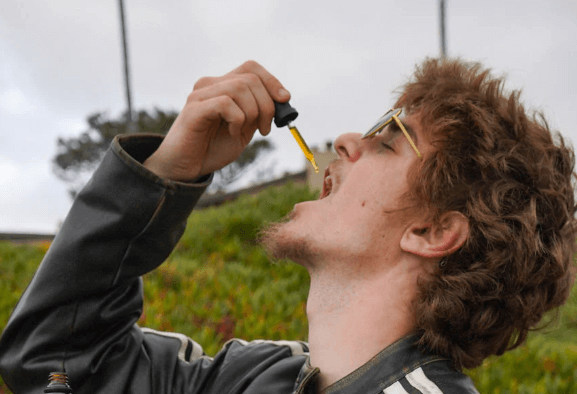The increasing popularity of CBD has raised important questions regarding its safety and potential for overdose. While CBD is widely regarded as a low-risk substance, anecdotal evidence and emerging research suggest that adverse effects can occur, particularly at high doses. Understanding the signs of an overdose, along with the factors that influence individual responses, is crucial for safe usage. As we explore the nuances of CBD consumption, it becomes evident that the topic warrants a closer examination to clarify common misconceptions and establish responsible guidelines for users.
Understanding CBD and Its Effects
Cannabidiol (CBD) is a non-psychoactive compound derived from the cannabis plant, known for its potential therapeutic effects on various health conditions.
CBD benefits include relief from anxiety, inflammation, and chronic pain.
Understanding CBD interactions with other medications is essential for safe consumption, as these interactions may influence effectiveness and side effects.
Awareness of these factors supports informed choices regarding CBD use.
See also: Can I Travel With Cbd Internationally
Current Research on CBD Safety
Recent studies have increasingly focused on the safety profile of CBD, revealing that while it is generally well-tolerated, there are specific dosage considerations and potential interactions that users should be aware of.
Research indicates that CBD toxicity levels are low, but individuals must adhere to legal CBD regulations to ensure safe use.
Awareness of these factors promotes informed decision-making among consumers.
Signs of CBD Overdose
While CBD is considered safe for most users, understanding the signs of overdose is important to ensure responsible consumption and avoid potential adverse effects.
Overdose symptoms may include drowsiness, dry mouth, changes in appetite, and gastrointestinal distress.
Though CBD has low toxicity levels compared to other substances, recognizing these signs can help users maintain a balanced approach to their CBD intake.
Factors Influencing CBD Dosage
Several factors can significantly influence the appropriate CBD dosage for individuals, including body weight, metabolism, the condition being treated, and personal tolerance levels.
Dosage variations arise as individuals may respond differently to CBD, necessitating adjustments based on their unique physiological characteristics.
Understanding one’s individual tolerance is essential for optimizing the therapeutic effects of CBD while minimizing potential side effects.
Responsible CBD Usage Guidelines
Adhering to responsible CBD usage guidelines is essential for maximizing its benefits while minimizing potential risks and side effects.
Practicing responsible consumption involves starting with low doses, monitoring individual responses, and gradually adjusting as needed.
Employing safe practices, such as consulting healthcare professionals when necessary and sourcing products from reputable suppliers, ensures a balanced approach that supports both wellness and personal freedom.
Myths and Misconceptions About CBD
Understanding the myths and misconceptions surrounding CBD is essential for informed usage.
Common misunderstandings often lead to confusion about its safety and appropriate dosage.
This section will clarify these points to promote a more accurate perception of CBD.
Common Misunderstandings Explored
Many people hold misconceptions about CBD, often leading to confusion regarding its effects and safety.
Common misunderstandings include the belief that CBD is illegal everywhere, despite varying CBD legality issues across regions.
Additionally, concerns about CBD product quality can arise from a lack of regulation, making it essential for consumers to verify the source and potency of products before use.
CBD Safety Myths
The safety of CBD is often clouded by myths and misconceptions that can mislead consumers about its potential risks and effects.
Many believe that CBD is entirely risk-free, overlooking possible CBD interactions with other medications.
Additionally, confusion about CBD legality varies by region, leading to further misunderstandings.
It is essential for consumers to seek accurate information to make informed decisions regarding CBD use.
Dosage Confusion Clarified
Confusion often arises regarding appropriate CBD dosages, leading to misconceptions that can affect both safety and effectiveness.
While there are dosage guidelines available, individual responses to CBD can vary significantly.
Factors such as body weight, metabolism, and specific health conditions play crucial roles in determining the optimal CBD dosage.
Therefore, personalized approaches are essential to ensure both safety and therapeutic efficacy.
Conclusion
Despite the prevailing belief that CBD is entirely safe, the possibility of overdose warrants attention.
While toxicity levels remain low compared to other substances, individuals can experience adverse effects, including drowsiness and gastrointestinal distress.
The importance of understanding personal tolerance and starting with low doses is crucial for safe consumption.
This underscores the necessity for responsible usage guidelines and ongoing research to fully comprehend the implications of CBD on health and well-being.





